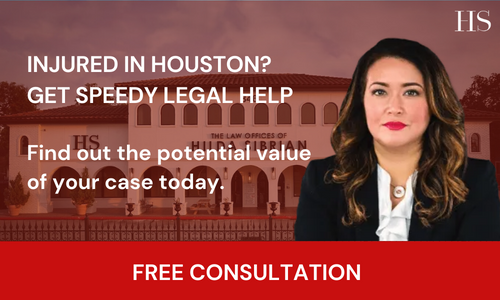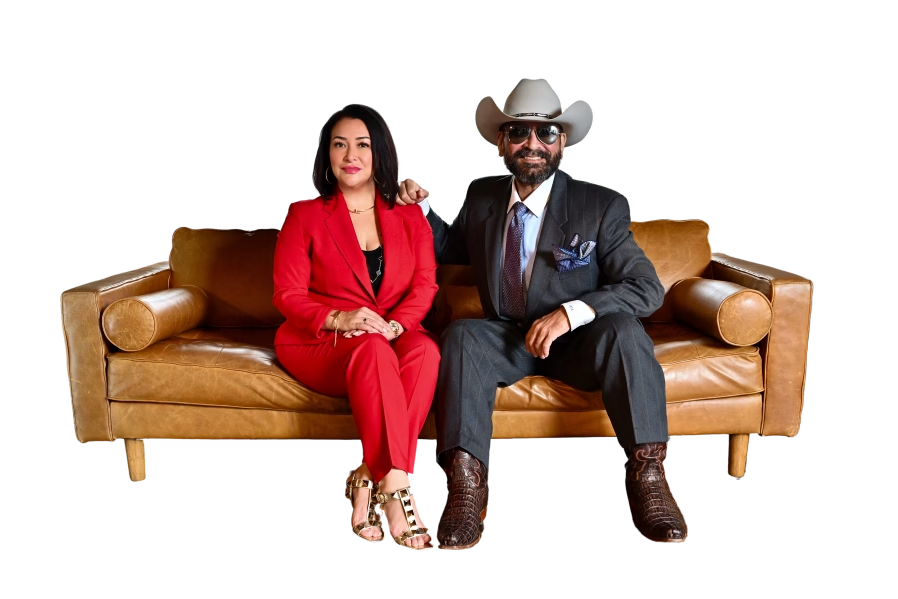With the Lone Star Rally coming up on Nov. 6 through Nov. 9th in Galveston, we’d like to remind everyone to wear a helmet. We get it: helmets aren’t cool. However, the truth of the matter is that motorcycle accidents cause severe or fatal injuries, on par with pedestrian accidents. One of the most effective ways to reduce the risk or severity of those injuries is by wearing a helmet. However, what many riders don’t realize is that helmet use can also affect the outcome of a motorcycle injury claim, especially at big events like the Lone Star Rally.
Texas has unique helmet laws compared with other states, and these laws can play a major role in how insurers and courts evaluate fault and damages after a crash.
Texas Helmet Law Overview
Here are the basics of helmet use under Texas law:
- State law: Under Texas Transportation Code §661.003, all motorcycle operators and passengers must wear protective headgear that meets minimum safety standards unless specific exemptions apply.
- Under 21: Riders and passengers under 21 must always wear a helmet-there are no exceptions.
- 21 and older: Riders may ride without a helmet only if they have completed a state-approved motorcycle safety course or carry health insurance that covers motorcycle accident injuries.
- Helmet standards: Helmets must meet federal safety standards (FMVSS 218) or equivalent state-adopted standards.
While police cannot stop a rider solely to verify helmet compliance, lack of a helmet can still influence a civil claim after an accident.
Why Helmet Use Matters in Injury Claims
Helmet use – or the lack of it – can strongly influence a motorcycle injury claim in several ways:
- Injury severity: Helmets significantly reduce the risk of serious head trauma. Studies show they can lower the chance of fatal injury by as much as 30%.
- Insurance and liability arguments: Even if a rider legally qualifies to go without a helmet, insurance companies and defense attorneys may argue that failing to wear one worsened the injuries and contributed to the harm.
- Comparative negligence: Texas follows a modified comparative negligence system. You can recover damages only if you are less than 51% at fault, but your recovery decreases in proportion to your level of fault. If a defendant proves that not wearing a helmet increased your injuries, the amount you can recover may be reduced.
How Helmet Laws Can Affect Your Claim
Below are common situations that show how helmet use can influence a motorcycle injury claim in Texas:
| Situation | Effect on Claim |
|---|---|
| Rider under 21 was not wearing a required helmet | Violation of state law; insurers or defense may argue that noncompliance worsened injuries, increasing assigned fault. |
| Rider over 21 meets exemption criteria (safety course or insurance) but chooses not to wear a helmet | Legally permitted, but insurers may still claim nonuse contributed to injury severity and reduce payout. |
| Rider over 21 does not meet exemption criteria and rides without a helmet | Violation of law; defense may argue both noncompliance and negligence aggravated injuries. |
| Rider wears a compliant helmet | Shows responsible behavior and adherence to safety standards; strengthens the injury claim by reducing comparative fault arguments. |
Key points to remember:
- Even with a legal exemption, riding without a helmet can still hurt your claim.
- Insurers may argue that helmet nonuse demonstrates careless behavior.
- While police may not enforce helmet use proactively, civil courts can still consider it.
- Document everything – the helmet model, DOT label, exemption proof, and crash details – as these details can affect claim evaluation.
Advice for Motorcyclists
If you ride a motorcycle in Texas, take the following steps to protect your health and your claim:
- Wear a helmet even if the law does not require it. It protects you and strengthens your position in any future claim.
- Preserve the helmet after a crash. Note the make, model, and safety certification (FMVSS 218 or DOT label).
- Document your exemption if you weren’t wearing (or don’t wear) a helmet – such as proof of insurance or completion of a safety course.
- Monitor insurance communications. Be prepared to counter arguments that nonuse of a helmet caused or worsened your injuries.
- Get medical care after a crash. Documentation is core to any claim strategy – if you’ve been injured, one of your first steps should be to get your injuries documented.
Common Motorcycle Injuries Linked to Helmet Nonuse
Helmets are the most effective piece of protective gear a motorcyclist can wear. Without one, riders face a much higher risk of catastrophic injuries. Even at moderate speeds, the force of impact in a motorcycle crash can lead to life-altering harm. Below are some of the most common injuries that occur-or are worsened-when a rider is not wearing a helmet.
- Traumatic Brain Injuries (TBI): The most serious consequence of riding without a helmet is a head injury. TBIs can range from concussions to severe brain damage, often leading to cognitive impairment, memory loss, or permanent disability.
- Skull Fractures: Helmets distribute the force of an impact, reducing the likelihood of fractures. Without that protection, the skull can fracture on impact, causing bleeding, swelling, or direct brain trauma.
- Facial and Jaw Injuries: Riders without helmets are exposed to direct impact with the pavement or other objects. Broken jaws, dental injuries, and severe facial lacerations are common in unhelmeted crashes.
- Neck and Spinal Cord Injuries: A helmet helps stabilize the head and neck during impact. Without it, the sudden motion can lead to spinal fractures, herniated discs, or paralysis.
- Eye and Ear Injuries: Flying debris, wind, or impact can damage a rider’s eyes and ears when no helmet or visor is worn, sometimes resulting in partial vision or hearing loss.
Other injuries can include bruises and road rashes. These injuries often require extensive medical care and long-term rehabilitation. They can also increase the financial and emotional toll on the injured person and their family. Wearing a DOT-approved helmet drastically lowers these risks and provides crucial protection in even minor collisions.
Reusing Helmets After an Accident
Never reuse a helmet that has been in a crash. Helmets are designed to absorb a single significant impact. Even if the exterior appears undamaged, the internal foam may have compressed or cracked, making it unsafe. And even if there is no actual injury to the helmet, defense attorneys and insurance companies may try to argue that your injury was your fault since you wore a “defective” helmet.
After any type of accident:
- Do not wear it again. Replace it immediately with one that meets DOT or Snell standards.
- Keep the damaged helmet as evidence-it may help document the severity and direction of the impact in your claim.
- Purchase a new helmet before riding again to maintain full protection.
Frequently Asked Questions
Is a helmet always required in Texas?
Riders and passengers under 21 must wear a helmet. Those 21 or older may ride without one if they’ve completed a safety course or carry qualifying health insurance.
Does riding without a helmet prevent a claim?
No. You can still file a claim, but nonuse may reduce your recovery if it contributed to your injuries.
Can helmet nonuse affect the other driver’s liability?
Possibly. It may increase your share of fault or reduce your damages if it worsened your injuries.
What’s the safest legal approach?
Always wear a helmet and preserve documentation of compliance. It strengthens both your safety and your claim.
Contact an Experienced Motorcycle Injury Attorney in Houston
Texas helmet laws give adult riders a choice – but that choice carries serious consequences in a motorcycle injury claim. Failing to wear a helmet can give insurers and defense attorneys grounds to argue comparative fault and reduce your recovery .
If you or a loved one suffered injuries in a motorcycle accident in Houston or anywhere in Texas, contact The Law Offices of Hilda Sibrian for a free consultation. Our firm understands Texas helmet laws and how to build a strong case for injured riders. Call 713-714-1414 or complete our online contact form today to discuss your case.









